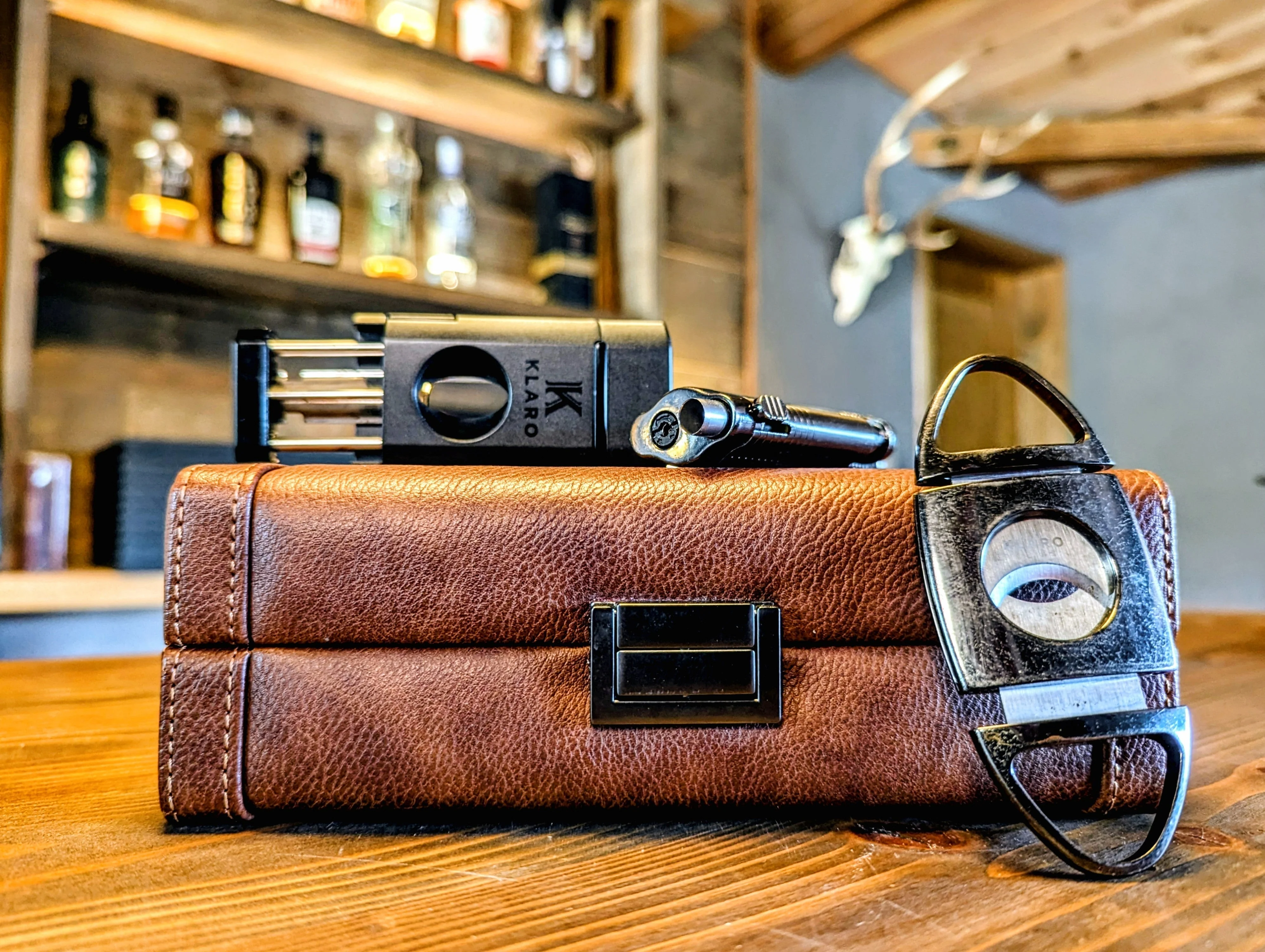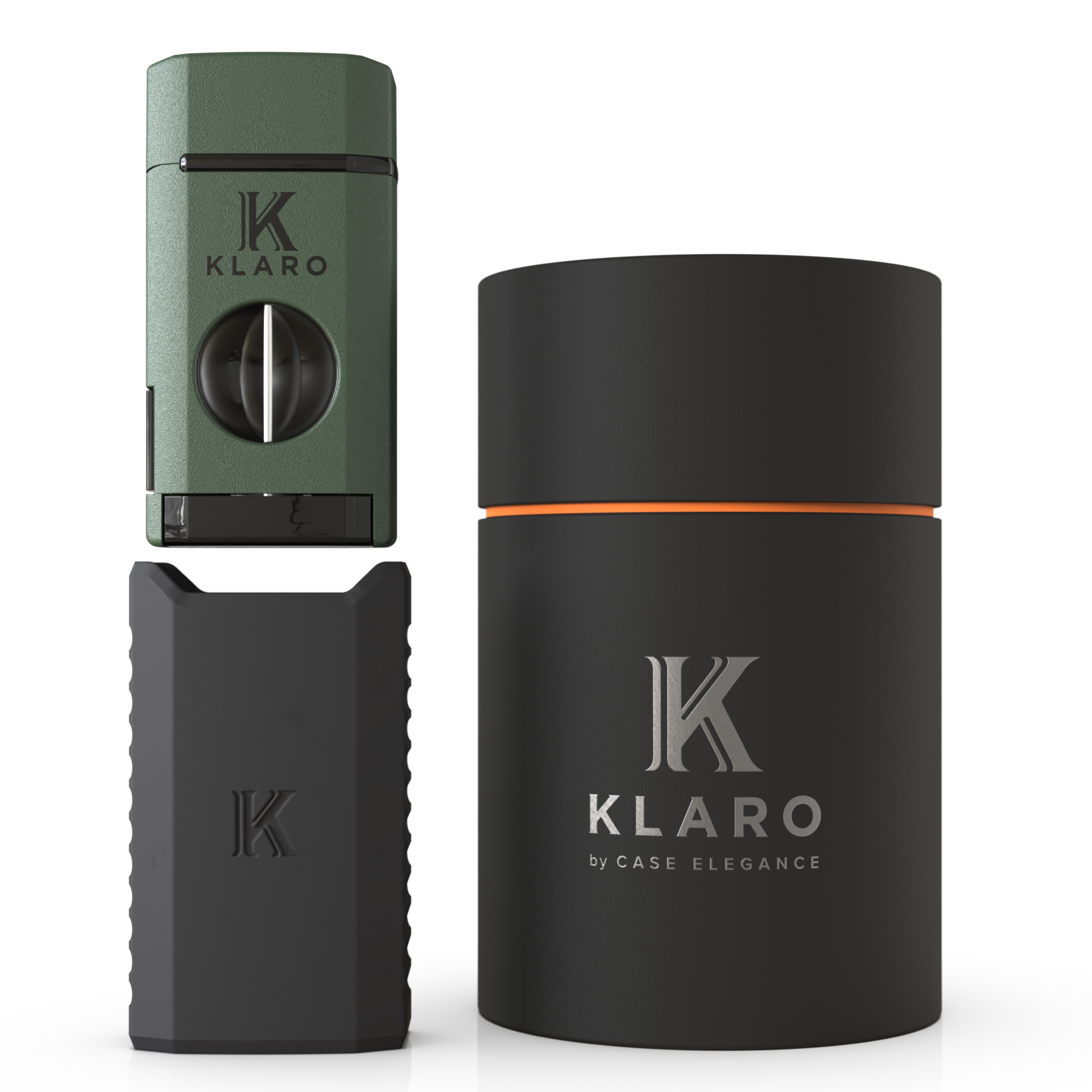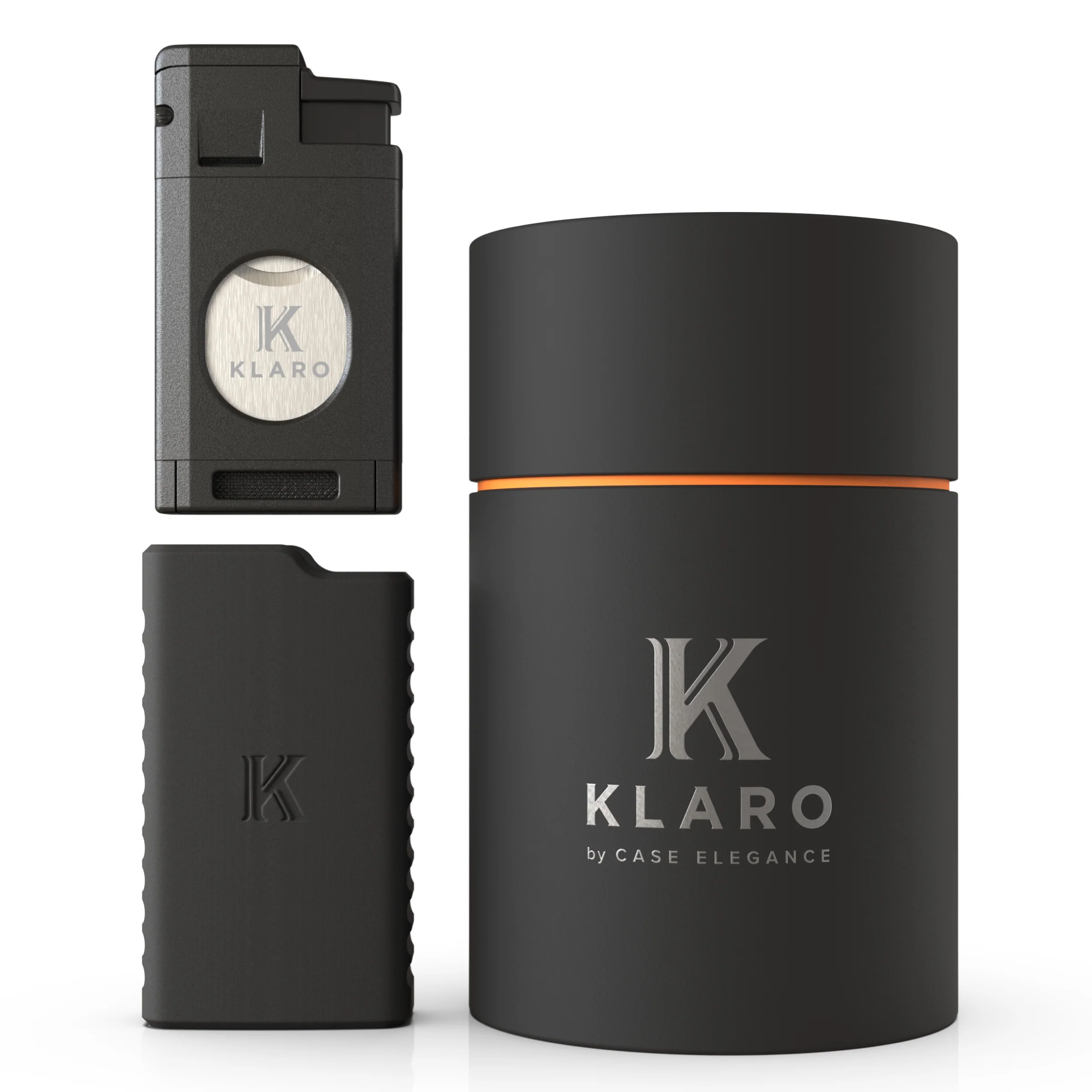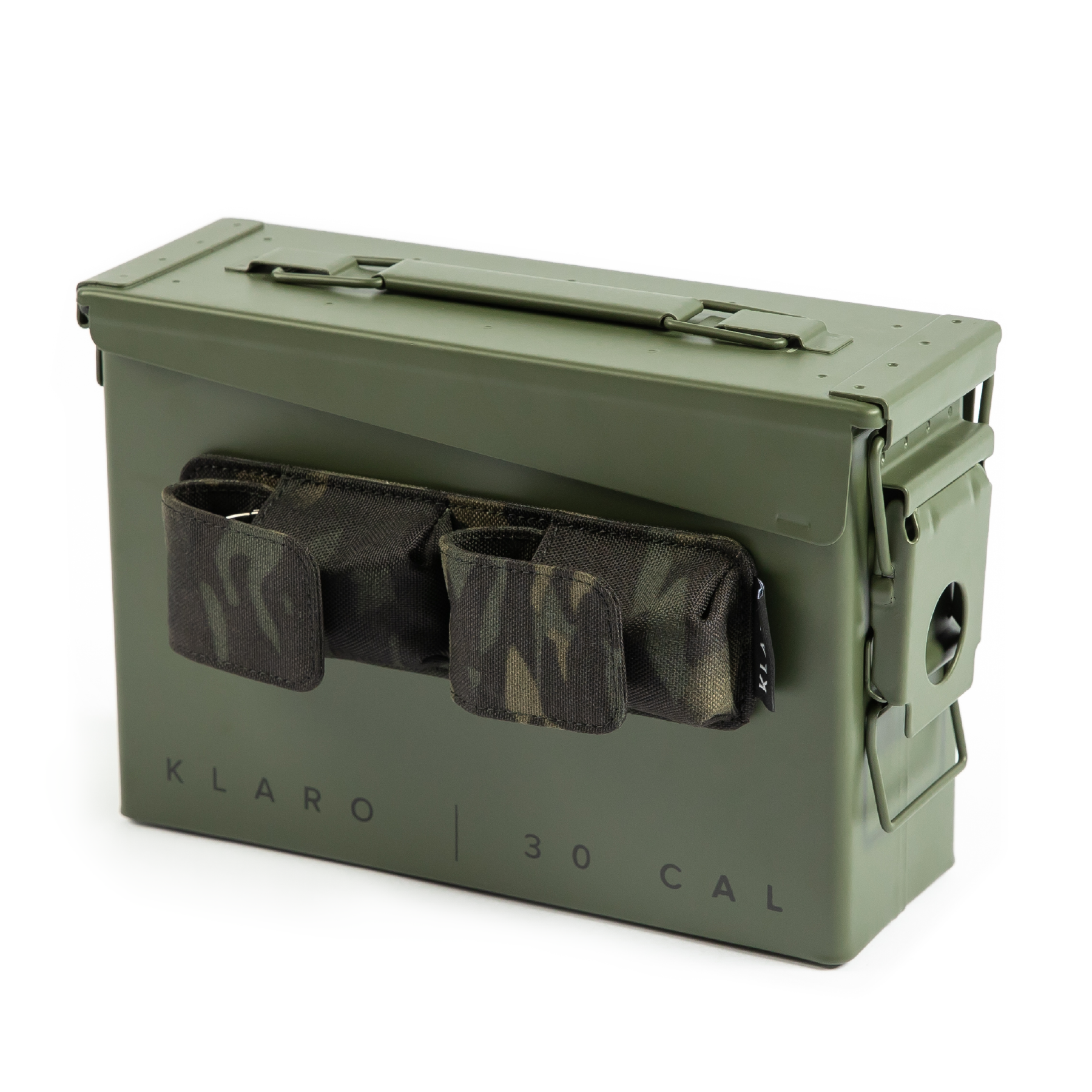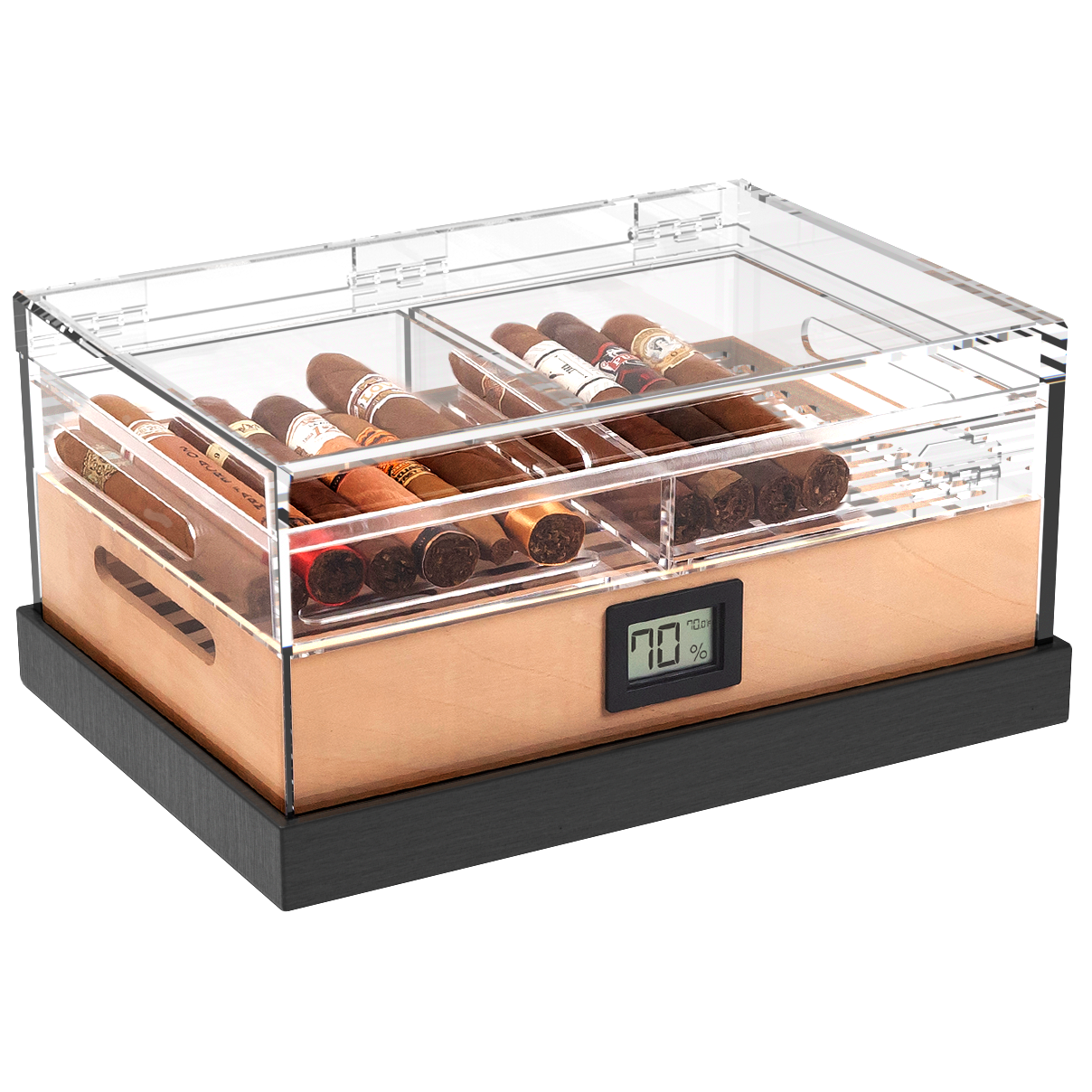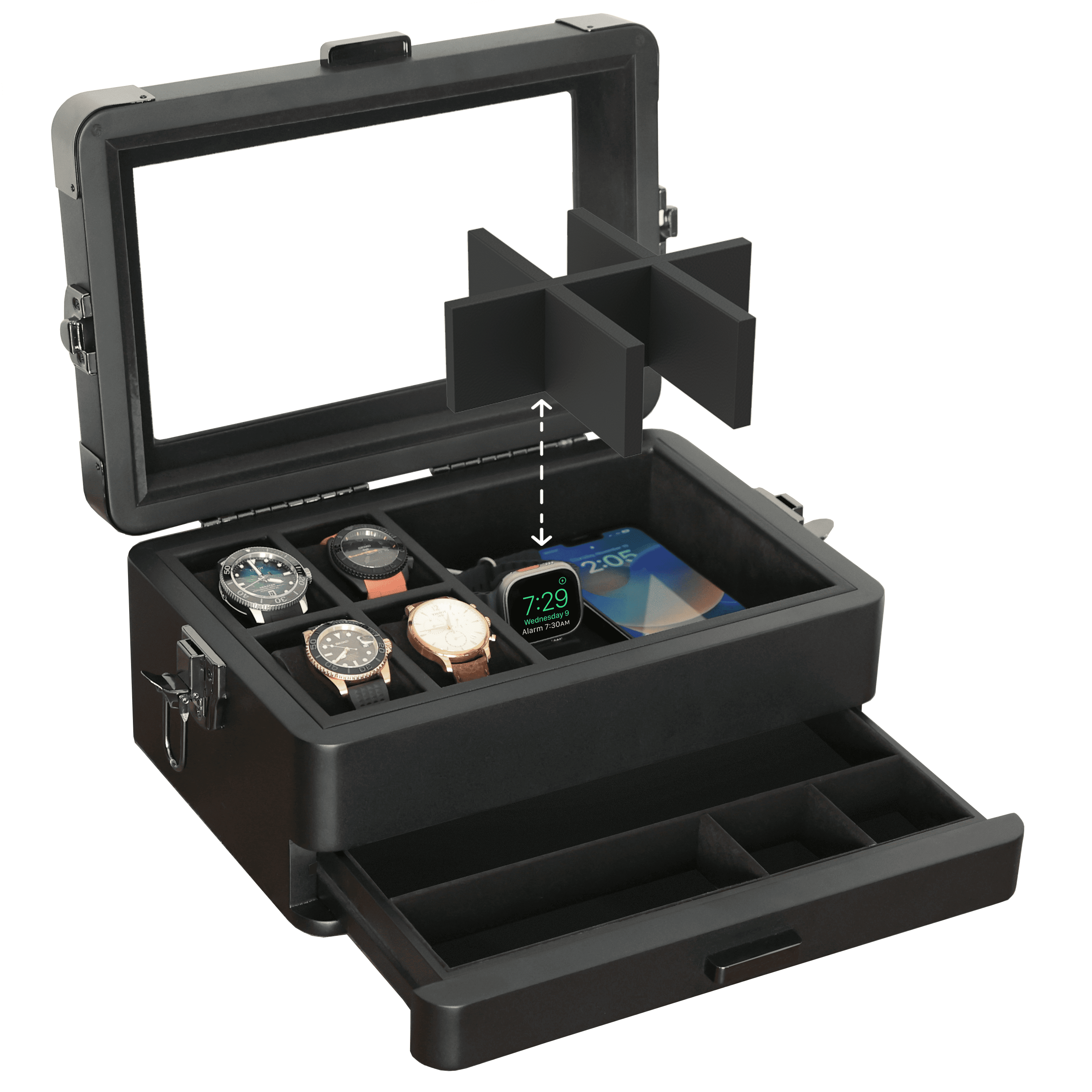Storing cigars correctly maintains the flavor and smoking qualities you bought them for. You safeguard their flavor, aroma, and texture—all important parts of the smoking experience. Cigars are sensitive to their environment, and without proper care, they can dry out, become overly humidified and soggy, or lose their rich flavors altogether. That’s why cigar humidors are so important. But packaging is the first line of defense against these risks—and manufacturers approach this with various techniques. But how well do they work?
This article explores one popular packaging option—glass tubes—and their role in preserving cigar quality. We’ll also look at the role of packaging when it comes to storing your cigars in a humidor.
What Are Cigars in Glass Tubes?
Glass tubes are a special form of cigar packaging designed to combine functionality with a bit of classiness. Unlike cellophane wrappers or wooden boxes, glass tubes create a sealed, protective environment around each cigar. The glass is often transparent, allowing you to view the cigar while safeguarding it from external elements. In a cigar shop, there’s certainly an aesthetic appeal. In your humidor, too.
Glass tubes are typically used for premium cigars to:
- Enhance presentation and appeal.
- Provide added protection during transportation.
- Offer a convenience for smokers and travelers.
- Preserve flavors and aromas.
However, despite their apparent advantages, glass tubes are not a one-size-fits-all solution for cigar storage: a glass tube won’t regulate humidity, for instance. But first, let’s take a closer look at how glass tubes compare to other storage options.
Types of Cigar Packaging

Cigar packaging has evolved over the years, with options tailored to meet the manufacturer’s needs and those of different smokers and environments. Here's a breakdown of the most common packaging methods you’ll see at any given cigar shop or when you order cigars.
-
Glass Tubes: Known for their airtight seal, these tubes are excellent for short-term protection but will almost certainly lack the moisture retention needed for long-term storage.
-
Cellophane-Wrapped Cigars: A lightweight and cost-effective option, cigar cellophane protects cigars from physical damage and mild environmental exposure but offers little to no humidity control.
-
Wooden Boxes: A traditional choice for collectors, wooden boxes are often made of cedar, which enhances the aging process and protects cigars when paired with a humidor. For the short term, wooden boxes are a great bulk storing option.
-
Plastic Tubes: Affordable and lightweight, plastic tubes offer basic protection but are less effective at preserving freshness. Again, you won’t get humidity control from a plastic tube, which inevitably puts your cigars at risk.
- Metal Tubes: Rarely used for premium cigars, metal tubes are durable and airtight but lack the aesthetic appeal and natural benefits of other packaging.
Each “tube” option above serves an important purpose: they create a physical barrier from one cigar to the next. Cigar oils can transfer when stored in a humidor or box, and the tubes effectively prevent one cigar’s flavor from affecting another’s. While each type of packaging has other strengths and weaknesses, all share one limitation: they cannot replicate the stable humidity environment of a humidor.
The Purpose of a Humidor

Humidors are the gold standard for cigar storage, maintaining the perfect balance of humidity and temperature to preserve cigars over time. Here’s why they’re essential:
- Control de la humedad: A humidor keeps humidity levels between 65-72%, preventing cigars from drying out or becoming overly humid.
- Temperature Stability: By maintaining a consistent temperature, humidors protect cigars from mold growth and flavor deterioration.
- Aging Environment: The controlled conditions of a humidor allow cigars to mature, deepening their flavors and enhancing the smoking experience.
Glass tubes, while protective, cannot regulate these factors over extended periods. But that’s not to say they are purposeless. As a general rule, if your cigar arrives with a packaging like a glass tube or cellophane, you don’t need to remove that before placing it in a humidor. Instead, the original packaging can supplement the work of the humidor.
Does Glass Tube Packaging Replace the Need for a Humidor?
Glass tubes offer an airtight seal that can temporarily protect cigars from drying out. They may also shield cigars from physical damage, such as crushing or tearing. However, they are not designed for long-term storage. Over time, the seal on a glass tube may allow slight air exchange, leading to gradual moisture loss.
For cigars stored in glass tubes:
- Short-Term Storage: Glass tubes are sufficient for a few weeks or months, depending on the environment.
- Long-Term Storage: A humidor is essential to maintain consistent humidity and ensure the cigars age properly.
Factors That Impact Cigar Freshness

Where you store your cigars matters—a lot. Different environments can dramatically affect their quality, and not all packaging is up to the challenge.
Dry Climates — In arid areas, cigars can dry out quickly. This leaves them brittle, flavorless, and unpleasant to smoke. While glass tubes can slow down this process, they’re not foolproof. Without added humidity, the cigar’s oils and aromas will eventually fade.
Humid Areas — High humidity can be just as problematic. Cigars might absorb too much moisture, leading to swelling, mold, or uneven burning. Glass tubes offer some protection here, but over time, even sealed cigars can’t escape the effects of a damp environment.
Temperature Swings — Places with big temperature shifts—like a sunny windowsill or a fluctuating garage—are especially harsh on cigars. Heat can dry them out or evaporate their natural oils, while cold temperatures can cause the wrapper to crack. Glass tubes might buffer these changes slightly, but they won’t maintain a stable environment.
Viaje — On the go, cigars are exposed to jostling, temperature changes, and inconsistent humidity. Glass tubes shine in this scenario, offering protection from damage and some insulation. However, for long trips or extended storage, they still need the backup of a humidor.
Cigars are sensitive to their surroundings, and while glass tubes provide decent short-term protection, they’re no match for the consistent environment a humidor can offer. If you know you’ll be facing any of these factors—dry climate, high humidity, temperature swings, busy travel—glass tubes will help, but you certainly should prioritize getting your cigars into a humidor as quickly as possible and possibly using a travel humidor.
How Effective Are Glass Tubes at Preserving Cigars?
Glass tubes offer several key benefits when it comes to cigar preservation, making them a popular choice for short-term storage and travel. Let’s take a closer look:
Airtightness — Glass tubes create a seal that minimizes exposure to ambient air, helping cigars retain their moisture. This airtight barrier is especially useful in preventing rapid drying or contamination from outside odors. However, over time, even a well-sealed glass tube can experience slight air exchange, leading to gradual moisture loss.
Physical Protection — The sturdy construction of glass tubes shields cigars from physical damage, such as crushing, tearing, or abrasion. This makes them ideal for travel or gifting, where cigars might otherwise be jostled or mishandled. They also protect delicate wrappers from cracks or scratches, ensuring the cigar’s presentation stays intact.
Flavor Preservation — By keeping cigars isolated, glass tubes help maintain their intended flavor profile. This is particularly important for premium cigars, where subtle notes can be compromised more easily.
Limitations of Glass Tubes
Despite these advantages, glass tubes have their limits:
-
Sensitivity to Environmental Changes: Glass tubes don’t provide any insulation against temperature or humidity fluctuations. Extreme heat or cold can still penetrate the tube, affecting the cigar’s oils and structure.
-
Lack of Active Regulation: Unlike humidors, which actively maintain a stable environment, glass tubes are passive. They rely entirely on the seal and the conditions they’re stored in, making them more vulnerable to environmental shifts. Cigars are hygroscopic, meaning they absorb and release moisture based on their surroundings, and the glass tubes leave them subject to environmental changes.
- Long-Term Storage Challenges: While glass tubes are great for a few months, they aren’t designed for aging cigars. Over time, the lack of airflow and precise humidity regulation can lead to stunted flavor development or even dryness.
When to Use Glass Tubes
Glass tubes shine in scenarios like travel or short-term storage, where convenience and protection are priorities. For long-term preservation or aging, however, pair them with a humidor to ensure consistent quality.
Common Misconceptions About Glass Tubes and Humidors

A frequent misconception is that cigars in glass tubes don’t require humidors. This belief often leads to cigars being stored in less-than-ideal conditions,
The aging process is significantly slower for cigars in glass tubes compared to those stored in humidors. While the airtight seal preserves the cigar’s original flavor, it may also hinder the development of deeper, more complex notes that emerge during aging in a humidor.
Benefits of Using Glass Tubes for Cigars
Glass tubes are a favorite among cigar enthusiasts for several compelling reasons. While they may not be suitable for long-term storage, they shine in specific scenarios. Here’s a closer look at their advantages:
Portabilidad
Glass tubes are tailor-made for travel. Whether you’re heading to a wedding, a golf outing, or simply taking a cigar to enjoy on a walk, glass tubes protect your cigar from damage and environmental fluctuations. Their rigid structure prevents crushing or bending, and the sealed design keeps out dirt, dust, or sudden changes in humidity. For anyone on the go, they’re a reliable and stylish solution.
Atractivo estético
There’s no denying the visual impact of a cigar in a glass tube. The transparency of the glass allows the rich color and intricate construction of the cigar to take center stage, creating an air of luxury. Premium cigars often come packaged in glass tubes to enhance their presentation, making them an excellent choice for gifts or as a statement of sophistication at events.
Convenience
Glass tubes offer unmatched simplicity for short-term storage. Unlike humidors or other complex storage solutions, a glass tube is ready to go right off the shelf. There’s no need to monitor humidity levels or worry about additional accessories like hygrometers or humidifiers. This makes them ideal for casual smokers or those who want an easy, no-fuss option.
Protection During Transport
Beyond portability, glass tubes provide excellent protection against the physical hazards of travel. They prevent wrappers from tearing, keep cigars from being crushed in bags or pockets, and shield them from accidental drops. For frequent travelers or those attending outdoor events, this level of protection can be invaluable.
Comparing Humidor Storage vs. Glass Tube Storage
The key differences between these storage methods include:
- Control de la humedad: Humidors maintain precise levels, while glass tubes rely on the initial seal.
- Durabilidad: Humidors are long-lasting investments, while glass tubes are disposable.
- Portabilidad: Glass tubes are easier to carry, but lack the comprehensive protection of a humidor.
How Long Can Cigars Stay Fresh in Glass Tubes Without a Humidor?

Cigars in glass tubes can stay fresh for 2-6 months, depending on the seal and environmental conditions. Beyond this period, they risk drying out or losing their flavor.
How to Properly Store Cigars in Glass Tubes
To protect cigars in glass tubes, store them in a stable, humid environment, such as a humidor. This will be the most surefire way for you to maintain their flavor and integrity. When you leave the glass tube on and store them in a humidor, you want to handle the tubes carefully and not place too much weight on them to avoid breakage.
You can also remove the glass tube. There are risks—oil transfer when stored next to other cigars, potential damage to the wrapper if crushed, etc.—but your safest bet is still the humidor. Opening glass tubes allows cigars to acclimate to the humidor’s environment. This is particularly useful for long-term storage. For short-term storage, keeping the tubes sealed is sufficient.
Glass tubes are some parts fashion, some parts functional, offering short-term protection and portability. However, they are not a replacement for a humidor. For long-term storage and aging, a humidor remains indispensable. By understanding the strengths and limitations of both, cigar enthusiasts can enjoy their cigars at peak quality.
Want to learn more about cigar storage? Check out the following resources:
- How Does A Humidor Work?
- How to Raise Humidity In Humidor
- How to Light A Cigar
- Benefits of Using A Cigar Punch



